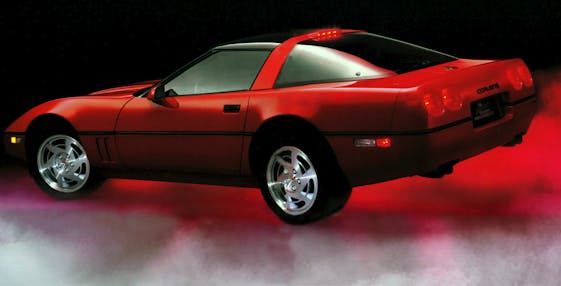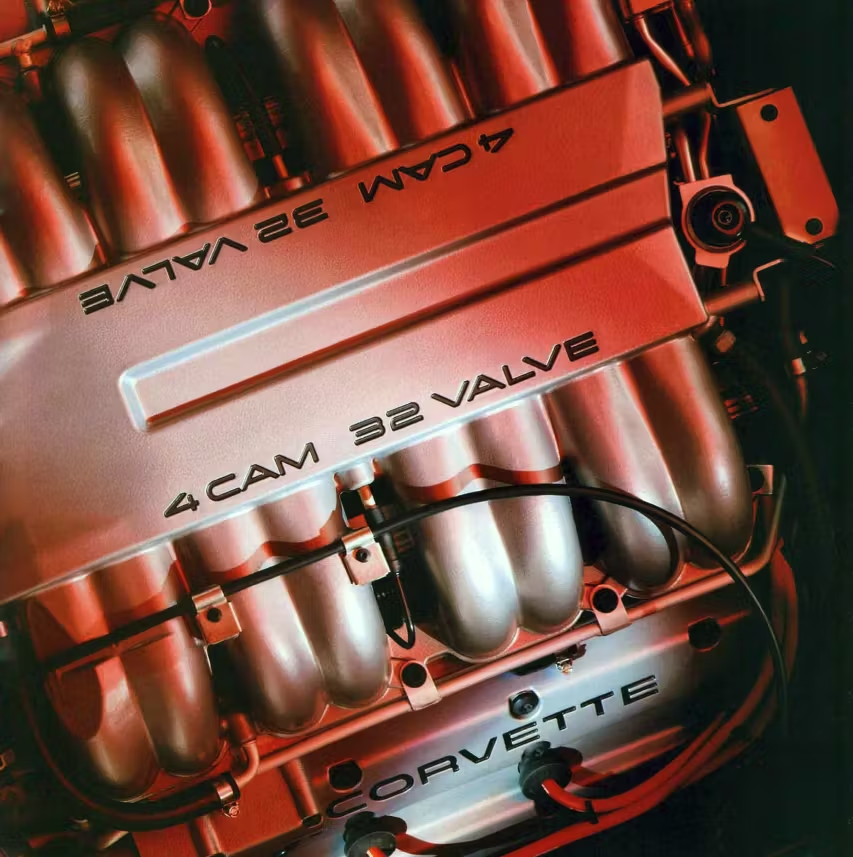Media | Articles
What is the best engine you’ve ever experienced?
This question might sound a little familiar, as we discussed your worst engines in our last installment of According to You. And that’s where Hagerty Community member Bob Keith’scomment comes into play:
“Hey one more thing – excellent piece on the Worst Engines – NOW how about an article on the BEST Engines? I would love to read the final survey results for that!”
Me too, Bob! So let’s do it. Your answers should not be regurgitated opinions from others, nor should they be from content consumed online or in a magazine. Only your experience with an engine can help forge such an enviable accolade.
To kick things off, I’ll share my candidate and give you all a sense of what we’re hoping to see in your answers.
Lotus/Mercury MarineChevrolet LT5 V-8

My experience driving a 1990 Corvette ZR-1 ensured that its 5.7-liter LT5 V-8 motor would become my runaway favorite engine. I got to enjoy it for just a few days as a college student, but that was all I needed. The C5 generation (1997–2004), LS1-equipped Corvette was already a couple of years old by the time I met the C4 generation (1984–96) ZR-1, but I couldn’t care less after tasting the sweet, sweet powerband of that LT5 motor. Between the 370 lb-ft of torque and 375 hp on tap and the wide powerband, the experience absolutely blew me away. (That little key on the dash that turns off half of the sixteen fuel injectors when someone else needs to drive it is worth a chuckle or two, as well.)
Then I drove a Lingenfelter stroker version of the LT5 that was bored out to 6.8 liters and made 668 horsepower—the brain-melting commenced for a second time. The big boy Lingenfelter has all the torque of a big block muscle car with the powerband of a VTEC Honda. You simply cannot understate the magnificence, especially when you open the hood and see Lingenfelter’s signature siamesed intake resting atop those massive double-overhead camshaft heads.
Marketplace
Buy and sell classics with confidence

The ZR-1 was a tour de force when new, but it’s just as impressive nowadays and still shockingly underappreciated in today’s red-hot collector car market. While it’s a bit complex on the induction side of things, the motors are shockingly reliable and quite trustworthy. Why people don’t lust after this vehicle is beyond me, but the LT5 is clearly the best engine I’ve ever experienced.
And with that, I leave it to you, Hagerty Community:
What is the best engine you’ve ever experienced?
Jump in with your experiences in the comments below.
Check out the Hagerty Media homepage so you don’t miss a single story, or better yet, bookmark it.






Best engine with the best sound I’ve ever experienced was the 2-liter carbureted flat-six in my old 1966 Porsche 911 with sport exhaust and K&N-type unsilenced air cleaners. Foot to the floor from a stop, up to the 7200 RPM redline, it sounds like ripping canvas, with an overlay of hollow metallic “pop-pop” sounds from the six-barrel Webers. It was as tough as a little anvil, and with a heart of pure gold.
Porsche / VW flat 6 / 4 cylinder engines . Air cooled delights . Surprising how they have lasted the test of time . Racing , daily drivers , off road they have done it all & excelled ! Even aircraft & boat power . Could they have ever thought way back when how successful those engines are .
The two best engines I’ve ever had were the BMW I6 (still have one in an ’06 Z4M Coupe) and the 1970’s Volvo inline 6 in my 2 164’s. Both fantastic, if quite different engines. The Volvo was still going strong when I sold it with 179,000 miles on it.
The 6 litre V12 prototype engine in my Aston Martin project vantage concept. Looks as good as it sounds as good as it pulls.
The jewel like bmw e21 straight 6 in my 320 was also memorable, smooth and powerful enough.
V12 magic!
1946 – 1955 Dodge or Plymouth 6 cyl. flat head. Never kill it..
Good variety of comments. A lot of peoples’ favorites are what they’re familiar with.
I was a car magazine writer and track test driver for 35 years. I’ve driven and tested virtually every engine and car/truck combination since Jimmy Carter was in office, and have owned more than 50 performance cars from the ‘50s, 60s and early ‘70s. As well as many from this century.
I’ve also written many “new vs old” car tests where we pitted the latest (say, a Mustang) against its biggest-engined vintage version. Doing performance tests with each one, I learned a ton about the hype versus reality of more than a few vintage engines.
I think there’s a difference between the greatest engine design (for longevity) and the greatest in terms of how it performed and made you feel when you drove it.
No doubt, an under-stressed inline six with a well-designed bottom end will run “forever.”
But, I prefer engines that blow me away with their torque, horsepower and sound. That can be the built Ford 427 side-oiler in my Kirkham Cobra, as well as the 6.6 liter V12 in my 2020 Ferrari Superfast that makes nearly 800hp, normally aspirated, and revs to just shy of 9000 rpm. Two vastly different power-plants, and I love them both. (Okay, I’m a Shelby guy at heart, so the side-oiler is my fav.)
The rest of my Top Ten Favorite Engines (in no particular order):
Dodge Hellcat.
Ferrari twin-turbo V8, in 2020-22 F8.
Chevy 427, in 2006-07 Z06 Vette.
Chevy 427, in 1966-69 Vette.
Porsche twin-turbo in 1997 911 Turbo S.
Buick 1965-66 425 “nailhead” with dual quads.
Dodge/Plymouth 440 six-pack.
BMW twin-turbo 600 hp V8 in 2020-22 Alpina B7.
I can also appreciate the reliable simplicity of a Beetle’s flat-four, the smoothness and sound of a Jaguar E Type’s inline six, and the velvety vintage power of a Duesenberg.
But, needless to say, there will never be a hybrid or electric car in my garage, or on my list.
Excellent list off evocative cars with terrific, character-filled engines.
yes i agree the chevy 427s the olds ones are my fave as wrll as the 454 ls 6 th ls 7 is great aldo
Jaguar supercharged V-8 found in the F-Pace SVR. 0-60 in 3.8 seconds. Tesla territory. ‘Nuff said.
Detroit Diesel 6V71 2 stroke, used in many buses and other commercial vehicles back in the day. Very simple and reliable, the sound is unmistakable.
My father was a crazy man for Dodge/Plymouth 318s and 225s. I can’t remember how many he had over the years, with never a problem. I have a ’69 440 6-pk that I just changed to Fi-Tec Tri-Power EFI and I love it. I had a Baja Islander with a 454 Mercruiser I/O EFI. Nice runner. I think my favorite engine in combination with the car was a ’95 Olds Aurora 4.4, all aluminum, OHC, fuel injected. Wonderful, comfortable, stable cruiser. Would cruise from Austin to S.A @ 90 like sitting in my recliner. Sorry, I’m getting dizzy!
BMW S38 3.6L (US market displ) DOHC 24 valve in-line 6. De-tuned naturally aspirated F1 engine w/ individual throttle-bodies: 345hp (chipped) in my 92 M5, but it could reliably deliver up to 1,000hp on a turbo.
Ran like a watch for 180k miles under my ownership. “Right now” throttle response. Sounded so nice, I would often turn off the stereo when alone on the interstate. Perfectly tolerant of endless Boston “stop & go” traffic jams.
Apart from a couple of odd gasket replacements, the biggest engine maintenance expenses were two factory recommended valve adjustments, a refurb of the injectors and a refresh of the MAF.
I really miss that car …..
The vast majority of these comments are from people that more than likely don’t have to actually work on engines in general. Changing oil, doing a light tune-up or other minor maintenance doesn’t really begin to illustrate what constitutes a great engine. Exhaust sound is cool and instantly available power rates high on the checklist, but how many of the “car people” know how to stuff a rope rear main seal on an early B/RB Chrysler or Buick engine? Or how to remove the broken cam sprocket on a 235 Chevy? Has anyone ever lifted the iron intake manifold off of a Ford FE while the engine was still in the car? I’m not sniveling about the bad side of engines because this is supposed to be about the best engine we’ve ever encountered. But if the details of what it takes to maintain any particular engine are omitted, doesn’t that affect the whole point of this conversation? No? Okay here are a few engines that make my hair stand on end: That ripping Ferrari V12 in that ’32 highboy at El Mirage. The snarl of the Merlin V12 in Bob Hoover’s Yellowbird P-51. The unbelievable sound of a BRM H-16. And of course, a 500 cubic inch billet aluminum blown nitro Hemi. No, they aren’t easy to work on, but listening to any of them is heavenly!
My favorite is my turbo LS3 based 416 stroker. Previously procharged, it is a lesson in absurdity. With a (relatively) mild cam, (relatively) decent idle quality and the ability to pass tailpipe test if needed, it’s pretty streetable. But it is infinitely more brutal than a solid roller cam 540 big block Chevy with a nitrous hit out of the hole. Diesel engine torque with so much under the curve it is borderline excessive. It pulls like a F4 off a carrier deck, just plain brutal torque. It is the quintessential American Car: too much power, too little handling ability. It is goofy without traction control, but I’m not a big race in traffic kind of guy.
The flip side is, I can drive it to the office and aside from it being loud, no one notices it. The drag radials, limo tint to hide the roll bar, the black racing harness with the name labels removed, it’s all sort of subtle. The garbage mismatch paint and panels add charm, and the poverty hub caps make less ominous. But that LS motor. Egads, man …
The relative simplicity and longevity of a 1000+ engine is pretty cool.
Flip side, Ford 240/300 are great. But I think the 6.0 LS in the 2002 shop truck is getting to that legend status.
For the laymen in the crowd. My 289 hipo solid lifter Ford or any solid lifter high revving small block for that matter and a Taurus Sho Yamaha V-6 above 4,000 rpm when the active intake manifold switched runners.
Chrysler Corporation small block 318 and 340 V8s
Chevy 327 with solid lifters, big Holley and single plane intake rowing through a four speed at 7,000 RPM. I’ve owned most all the common Chevy small blocks from 283 through 400 and the 327 was, like the Three Little Bears, “just right”.
For the last twenty years though, (since the cars from my teens became too expensive to own), I’ve enjoyed the 3 liter Busso in my Alfa 164S. Very reliable, not expensive to fix if you do your own work, and the sound – the sound!